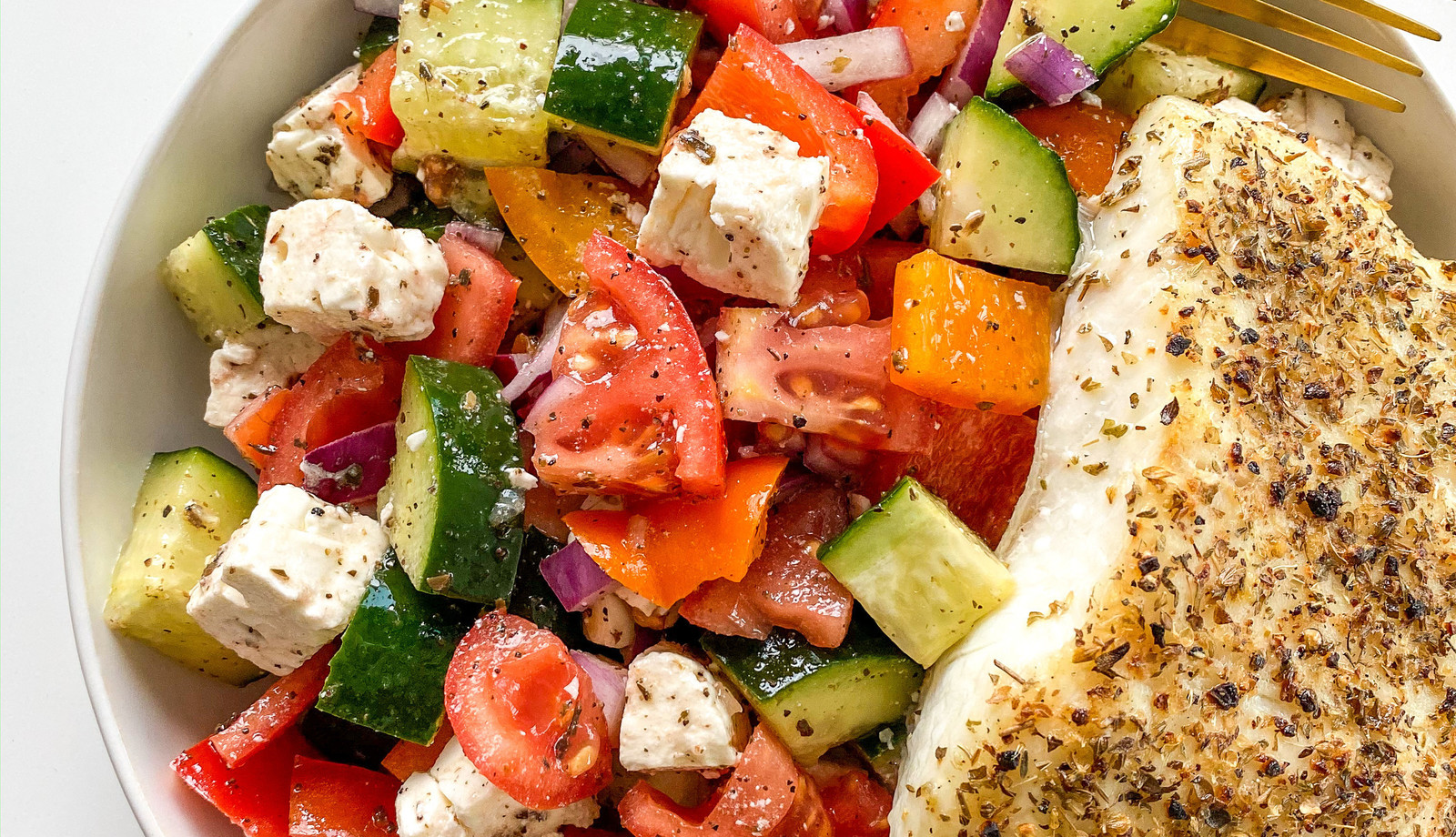Give this delicious Alaskan halibut a Mediterranean twist with just a few simple ingredients.
Wild Alaska Seafood includes numerous health benefits and nutrients! Here’s why this Mediterranean style Alaskan Halibut with a village Greek salad is perfect for your next meal:
Alaskan Halibut along with other wild Alaska seafood offers nutrients including:
- Omega-3 Fatty Acids – Loaded with EPA and DHA, these fats reduce the risk of heart disease, Alzheimer’s Disease, lower inflammation and reduce the risk of cancer.
- Vitamin D – one of the most significant food sources of vitamin D available. This nutrient is critical for brain health, bone health, and reduced risk of cancer, diabetes and heart disease.
- B Vitamins – niacin, B6 and B12 – essential for functions including energy production at the cellular level, creating and repairing DNA, and reducing inflammation.
- Selenium – protects bone health, decreases thyroid antibodies in people with autoimmune thyroid disease and may reduce the risk of cancer. It also protects against mercury toxicity.
- Potassium – helps to control blood pressure and risk your risk of stroke.
- Iron, Copper, and Zinc – necessary for a range of bodily function including wound healing, oxygen transportation, immune function, and cellular growth.
- Protein – rich in high-quality protein which plays a role in healing, protecting bone health and maintaining muscle mass.
Enjoy and Eat Seafood, America!



Leave a Reply